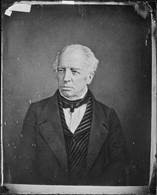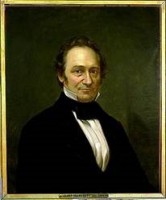Wisconsin: The Final Firework in the Antislavery Legal Movement

Lemuel Shaw
This is the fourth in a series of Schoone Fellowship Field Notes.
Putting Wisconsin’s antislavery heritage in perspective. Wisconsin takes great pride in its antislavery heritage, particularly the Northwest Ordinance (1787), which ensured that Wisconsin would be a free state, and the Booth Cases (1854, 1859), in which Wisconsin stood alone in defying the federal government’s attempt to turn northerners into slavecatchers. This pride is justified but needs perspective. When Wisconsin arrived on the American stage as a new state (1848), American slavery was two centuries old and the legal reaction against slavery had been underway for 70 years. The Booth Cases were important, but they were merely the final fireworks in the drama of American law and slavery.


